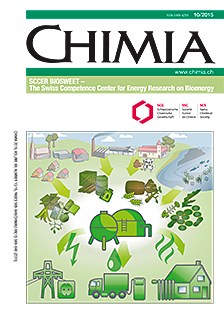Improving Heterogeneous Catalyst Stability for Liquid-phase Biomass Conversion and Reforming
DOI:
https://doi.org/10.2533/chimia.2015.582Keywords:
Biomass conversion, Catalyst stabilization, Deactivation, Heterogeneous catalysis, Process engineeringAbstract
Biomass is a possible renewable alternative to fossil carbon sources. Today, many bio-resources can be converted to direct substitutes or suitable alternatives to fossil-based fuels and chemicals. However, catalyst deactivation under the harsh, often liquid-phase reaction conditions required for biomass treatment is a major obstacle to developing processes that can compete with the petrochemical industry. This review presents recently developed strategies to limit reversible and irreversible catalyst deactivation such as metal sintering and leaching, metal poisoning and support collapse. Methods aiming to increase catalyst lifetime include passivation of low-stability atoms by overcoating, creation of microenvironments hostile to poisons, improvement of metal stability, or reduction of deactivation by process engineering.Downloads
Published
2015-10-28
Issue
Section
Scientific Articles
License
Copyright (c) 2015 Swiss Chemical Society

This work is licensed under a Creative Commons Attribution-NonCommercial 4.0 International License.
How to Cite
[1]
F. Héroguel, B. Rozmysłowicz, J. S. Luterbacher, Chimia 2015, 69, 582, DOI: 10.2533/chimia.2015.582.







